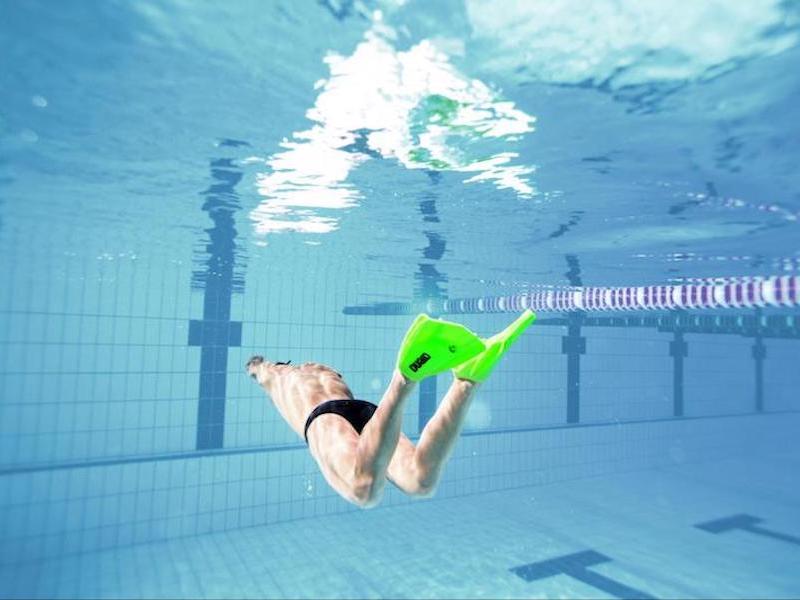

Back to Swim Series
Fins are one of the most important pieces of training equipment competitive swimmers can have at all levels. From a novice level swimmer who is building fundamental skills such as undulation, to Olympic level athletes building strength and speed; fins are an essential tool to the development of swimmers!
There are two basic styles of fins: long blade fins and short blade fins; and each have some fantastic benefits! But depending on your training goals, one might be better suited for your needs than the other!
Long Blade Fins
The most noticeable difference between long blade and short blade fins would be the length of the “blade” or the fin. Long blade fins are of course longer than short blade fins, but that is not the only difference between the two fins. Long blade fins are usually made of a more soft rubber material to allow a bit more flex in the blade of the fin. The added resistance of the longer blade means you will be moving more water with every kick, and the flexible blade ensures that not too much pressure is put on your ankles when kicking.
These fins are typically used for slower tempo drills and training. The long blades allow you to slow down your stroke and kick tempo while still maintaining a proper body position in the water. This is excellent for beginner swimmers who are trying to focus on a specific technical aspect of their stroke!
Another great use of the long blade fins is to develop the undulation and dolphin kick, which is a very fundamental and essential skill for any swimmer to learn! The extra length and flexibility of the blade help teach swimmers the natural flow of undulation in the water.
Check out our Colour Keyed Long Fins [here]

Short Blade Fins
Other than having a shorter blade, these fins are usually a bit stiffer and wider than a long blade fin. Short blade fins also have a more pronounced rail that runs along the side of the fin to aid in catching a bit more water.
Short blade fins are designed to provide resistance to the swimmer, but not so much that it slows the kick tempo down. Short blade fins force the swimmer to maintain a higher kick tempo which provides some great training benefits. The added resistance builds strength and the high kick tempo required when using these fins builds cardio and fitness.
For competitive athletes, short blade training fins also allow you to achieve and exceed race-day speeds in a practice setting while not disrupting your natural stroke rhythm. Kick tempo is a very important piece to keep the stroke rhythm, and short blade fins allow swimmers to keep that higher kick tempo which is natural during race pace and sprinting.
Open heel designs typically allow for more natural ankle mobility, while boot fit can offer a more lock-in feel.
For open-heel design, check out the Arena Powerfin Pro [here]
For boot-style design, check out our TAS Shortblade Fins [here] or Speedo Switchblade Fins [here]


